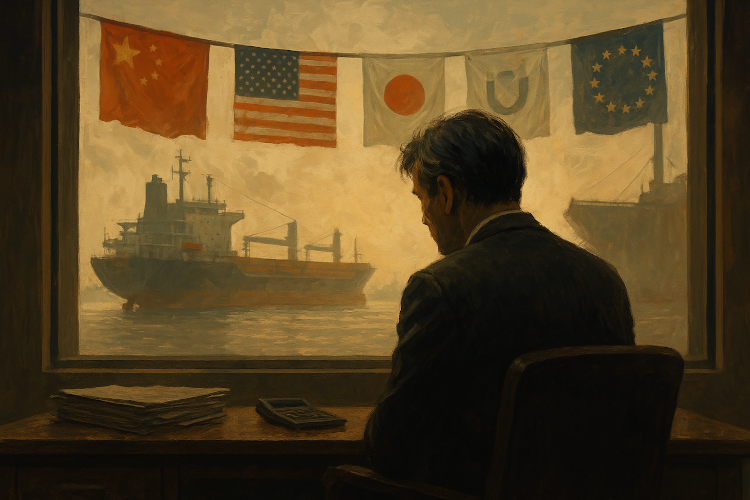When Debt Becomes a Deal with the Devil: Navigating Shadow Lines in Global Trade
Caught between rising debt and global trade wars, smaller nations face tough choices. When financial lifelines come with strings, the line between survival and complicity blurs—raising urgent questions about sovereignty, ethics, and the hidden costs of influence.

In an age where geopolitics and economics are deeply entwined, the convergence of rising national debt and intensifying global trade tensions has created a precarious environment for many nations operating on the margins of power. As tariff wars unfold between major global players—each imposing economic measures to assert dominance—smaller, debt-burdened countries increasingly find themselves navigating a dangerous middle ground.
The issue at hand is no longer limited to economic survival. It now extends to the ethical and political compromises that some nations may be willing—or forced—to make in order to secure immediate financial relief. In this high-stakes game of global influence, the role of the “devil’s advocate” emerges not just as a metaphor, but as a political reality—where acting in favor of one side, or enabling indirect access to restricted avenues, becomes an unavoidable consequence.
When national debt swells beyond sustainable levels, the temptation to accept financial lifelines—be it through loans, infrastructure investments, or trade partnerships—grows stronger. These lifelines, however, often come attached to terms that go beyond economics. They may include tacit expectations of loyalty, influence over domestic policy, or access to strategic assets. In such scenarios, financial support becomes a double-edged sword, simultaneously offering relief and exerting control.
This delicate balancing act—between maintaining financial stability and preserving political autonomy—often leads to situations where nations are cornered into taking deals that compromise long-term sovereignty for short-term gain. The danger intensifies when these arrangements stretch beyond fiscal policy and veer into ethically grey territory.
There have been instances where economically pressured states inadvertently facilitate the movement of sensitive technologies or act as quiet intermediaries in transactions that circumvent established trade and security frameworks. In such cases, the line between economic pragmatism and political complicity blurs. When oversight is weak and desperation is high, regulatory loopholes become openings for exploitation.
The risk isn't just national—it becomes regional and global. A single breach in ethical or security standards can ripple outward, undermining alliances, destabilizing markets, or fueling strategic imbalances. When trade deals serve as backdoors for illicit movement or technological espionage, the consequences extend far beyond a single transaction or country.
The ongoing trade conflicts only deepen this complexity. As tariffs restrict the flow of goods and investments, nations caught in between may resort to workaround tactics, not out of ill intent, but necessity. In doing so, they expose themselves to becoming unknowing participants—or even pawns—in larger power struggles.
This raises a difficult but crucial question: How far is too far when pursuing economic relief? At what point does pragmatism turn into compromise, and compromise into complicity?
While the immediate benefits of siding with one global power over another may appear to ease domestic pressures, the long-term costs—reputational, political, and ethical—can be devastating. For nations already under strain, becoming part of opaque deals or informal influence networks risks entangling them in conflicts they did not choose, but now cannot escape.
In the end, maintaining integrity in global trade and diplomacy requires more than economic strategy—it demands vigilance, transparency, and the courage to uphold ethical standards even in the face of financial hardship. Because when the line between survival and subservience begins to fade, it becomes dangerously easy for any nation to slip into the shadows of another’s ambition.